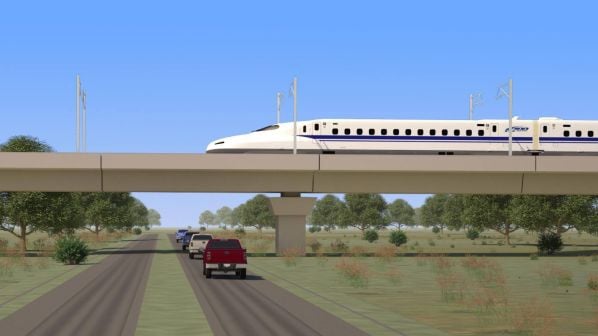THE Texas Supreme Court has ruled in favour of Texas Central, confirming that the private company building a 379km high-speed line between Dallas and Greater Houston is legally an interurban electric railway company, and as such can exercise the right of eminent domain. This allows it to force the purchase of the land required for the line.
The ruling, which the court approved through a 5-3 vote, concludes a suit filed in 2020 by landowners along the route who opposed the line. The landowners argued that the Texas Central project was not a railway under Texas law and therefore did not have the rights associated with a railway, including eminent domain and access to property for surveyors.
The suit had caused uncertainty for the Texas Central project, which was exacerbated by the resignation of Texas Central’s CEO, Mr Carlos Aguilar, in mid-June.
The ruling confirms a similar ruling in May 2021 by Texas’ Thirteenth Court of Appeals, which also found that Texas Central is a railroad company and interurban electric railway.
The 300km/h line will be built by Webuild and its subsidiary Lane under a $US 16bn contract signed in 2021. The contract includes the construction of the track infrastructure, viaduct and embankment sections, maintenance buildings, yards and warehouses. Half of the line will be along a viaduct.
Spanish state-owned operator Renfe has been appointed operator of the line, and will work on the design and development of the operation and commercial aspects of the project. The fleet technology will be based on Central Japan Railway’s Tokaido Shinkansen.
For more data on high-speed rail projects, subscribe to IRJ Pro.

